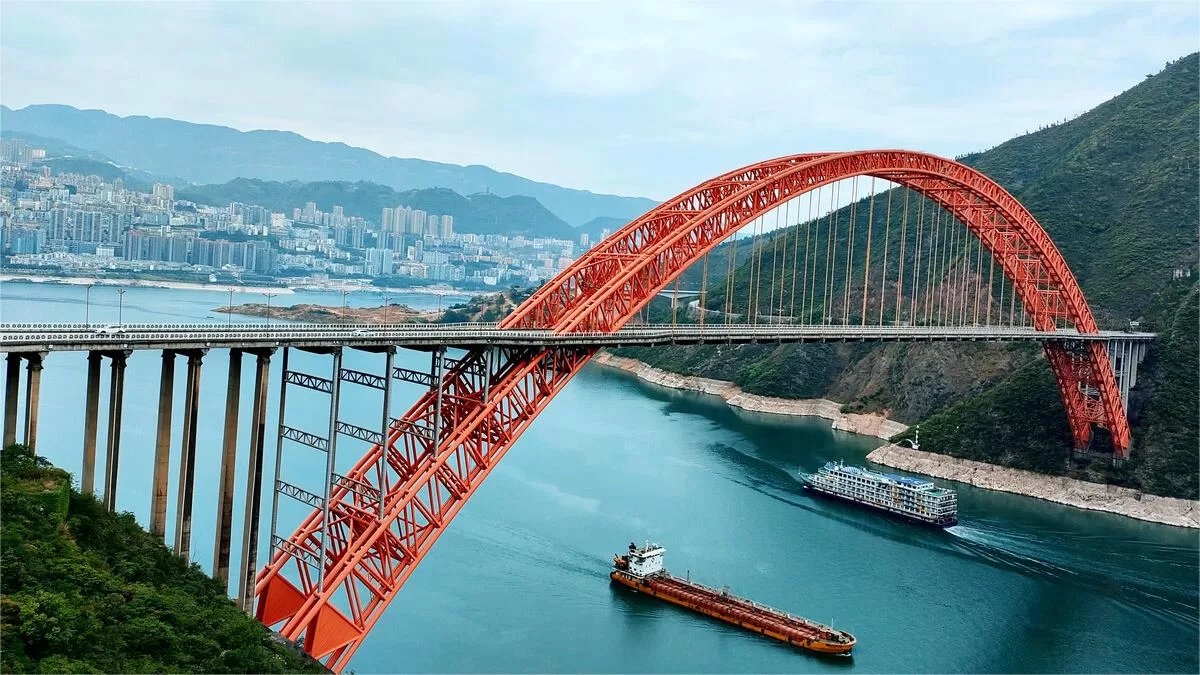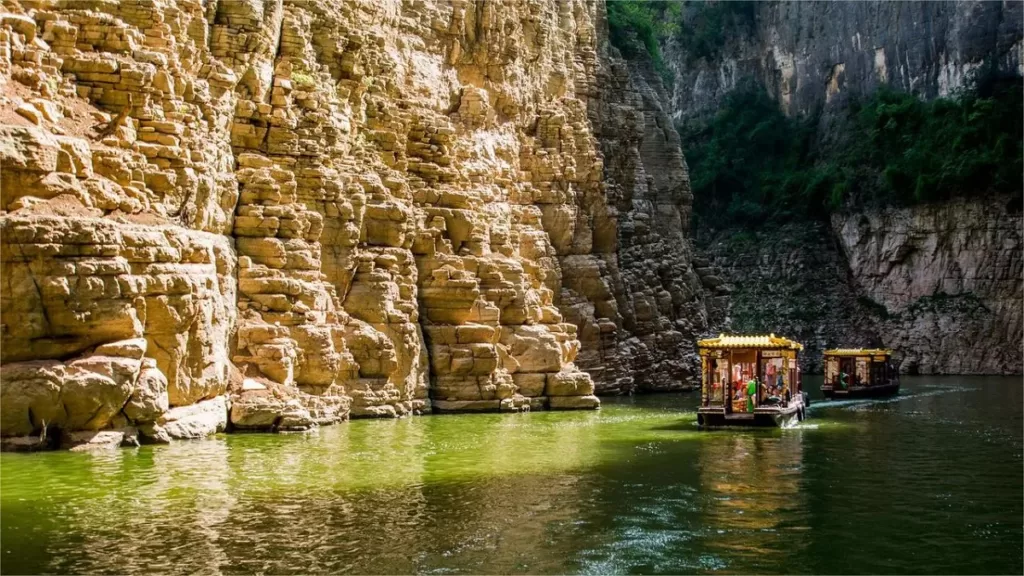Wushan Yangtze River Bridge (巫山长江大桥), located at the entrance of the Wu Gorge in the Three Gorges section of the Yangtze River, stands as a remarkable steel pipe arch bridge. With a net width of 19 meters, four lanes in each direction, and a main span of 492 meters, the bridge is an engineering marvel. The entire bridge system includes approach roads spanning a total length of 7.4 kilometers, with a roadbed width ranging from 8 to 12 meters. Widely recognized as the “Gateway to the East of Chongqing” and the “First Bridge in the East of Chongqing,” Wushan Yangtze River Bridge has not only set several world records but has also been listed among the world’s top hundred bridges.
The construction of Wushan Bridge achieved significant breakthroughs in various aspects of the steel pipe arch rib installation, cable crane span, tower height, lifting height, load capacity, and the strength of the prestressed concrete within the pipes. Overcoming three major global construction challenges related to the production and installation of steel pipe arch ribs, as well as the pressure injection of concrete inside the pipes, it proudly stands as the first medium-span steel pipe arch bridge across the Yangtze River.
The Yangtze River, often considered a natural barrier to economic development in Wushan, has historically created an economic imbalance between the north and south banks, severely constraining the overall economic development of Wushan. The Wushan Yangtze River Bridge, as a supporting structure for the main artery of the “8-hour Chongqing” expressway, the Yubu Road, plays a crucial role in connecting regions such as Badong, Enshi, Yichang, Jianshi in Hubei, and Zhangjiajie in Hunan. The completion and opening of the bridge will effectively break this economic bottleneck, holding significant practical and historical significance in terms of expanding Wushan’s tourism landscape, facilitating traffic flow in the eastern Chongqing region, and driving the overall economic development of Wushan.
In essence, the Wushan Yangtze River Bridge emerges as more than just a physical structure; it symbolizes the triumph over geographical challenges, fostering regional connectivity, and unlocking new opportunities for economic growth and development.





